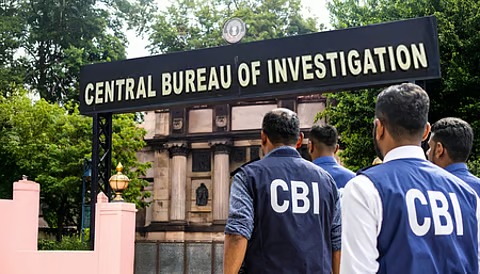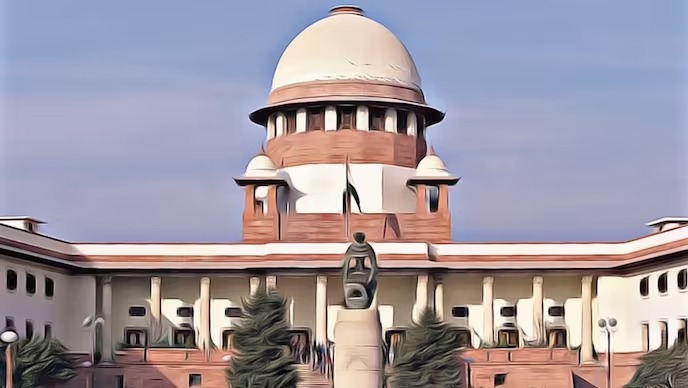@JUDGMENTTAG-ORDER
P.S. Narayana, J.@mdashHeard Sr. C.B. Ram Mohan Reddy, learned Counsel for the petitioner and Sri Surappa Naidu, the amicus curiae appointed by the Court.
2. Perused the material on record.
3. The revision petitioner-Judgment Debtor No. 5 aggrieved by the order dated 7-12-2000 made in E.A.No. 575 of 2000 in E.P.No. 396 of 2000 in O.S.No. 557 of 1997 on the file of the Principal Junior Civil Judge, Khammam had preferred the present revision petition. She filed the E.A. u/s 47 of the C.P.C. to declare the execution proceedings against her, who is the wife of defendant No. 4 in the suit, as void since the said defendant No. 4 died even during the pendency of the suit and none of the legal representatives are brought on record. The Court below had passed the following order dt. 7-12-2000.
"It is urged that knowingly or unknowingly a decree was passed against dead person judgment debtor No. 4 by this Court in O.S.No. 557 of 1997 on 8-2-1999 and as a decree against the dead man is nullity, the E.P. proceedings can be declared null and void. Counter was filed opposing the E.A. stating that J.Dr.No. 4 died on 10-4-1998 whereas this Court passed the decree on 8-2-1999 subsequent to his death and the decree cannot be null and void and the proceedings in E.P. cannot be stopped. According to respondent Chit Fund Company, it has no knowledge about the death of the J.Dr.No. 4 and as such a decree was obtained against him. Further, the petitioner kept silence with a dishonest intention to procrastinate the proceedings and filed the present petition.
Admittedly, the decree was passed by my predecessor on 8-2-1999 against all the judgment-debtors. The E.P. was filed under Order 21 Rule 48 C.P.C. and the same was numbered by another predecessor. There is no dispute that a decree against a dead man is a nullity. But this is not the proper proceeding to ventilate the grievance of the petitioner and to get the declaration as null and void. The fundamental basic principle of law is that the executing Court cannot go behind the decree passed by it. The recourse open to the petitioner is to file a separate suit questioning the validity of the decree and to declare it null and void."
4. The learned Counsel for the petitioner had drawn my attention to the relevant portions of the respective pleadings and contended that the Court below having observed that the fourth defendant died even long prior to the passing of the decree and though the fact remains that the plaintiff in the suit had not taken any steps to bring the legal representatives of the fourth defendant on record, had rejected the objection raised by the revision petitioner relating to the executability of such a decree as against the petitioner u/s 47 C.P.C. The learned Counsel also further contended that the very numbering of E.P. is unsustainable. The learned Counsel also contended that the observation that such an objection should be raised not under. Section 47 of C.P.C. but by filing a separate suit is totally unsustainable in law. In support of his contentions the learned Counsel placed reliance on a judgment of the Supreme Court in
5. The facts appear to be not in dispute. Whether the plaintiff had knowledge about the death of the party or not the fact remains that none of the legal representatives of the fourth defendant were brought on record and ultimately the decree was passed. It may be that it was not brought to the notice of the plaintiff about the death of the party at the relevant time. However, the legal effect of non-bringing of the legal representatives on record in accordance with the provisions of Order 22 Rules 3 and 4, C.P.C. will be that such decree passed against a dead person is a nullity. Section 47 of C.P.C. deals with the questions to be determined by the Court executing decree and sub-section (1) specifically says that all questions arising between the parties to the suit in which decree was passed, or their representatives, and relating to execution, discharge or satisfaction of the decree shall be determined by the Court executing decree and not by a separate suit. It is pertinent to note that the words ''not by a separate suit'' assume importance. In the present matter, though rightly an objection was raised u/s 47 C.P.C, the Court below had observed that the remedy available is by way of filing a separate suit. This observation is totally unsustainable and in fact unwarranted. In
6. I am in entire agreement with the learned Counsel for the revision petitioner Sri C.B. Ram Mohan Reddy to the effect that a decree passed against a dead person without complying with the provisions of Order 22 Rules 3 and 4, C.P.C. will be a nullity and such decree cannot be executed as against legal representatives.
7. For the aforesaid reasons, the impugned order dt. 7-12-2000 in E.A.No. 575 of 2000 in E.P.No. 396 of 2000 in O.S.No. 557 of 1997 is hereby set aside and the revision petition is allowed, however, in the facts and circumstances of the case without costs.

